Jimmy Savile: Who deleted and withheld the intelligence? – An up-date
- – Crime and Parliamentary affairs correspondent TIM HICKS provides a short update on his recent articles on Jimmy Savile and Peter Jaconelli.
~~~~~~~~~~~~~~~~~~~~~~~~~~~~~~~~~~~~~~~~~~~~~~~~~~~~~
Jimmy Savile: Who deleted and withheld the intelligence? – An up-date
Following on from my investigation on the North Yorkshire Police report by Deputy Chief Constable Sue Cross into its failure to detect Peter Jaconelli and Jimmy Savile:
http://www.real-whitby.co.uk/operation-yewtree-cross-report
I subsequently wrote an article on the police intelligence failures in North Yorkshire and West Yorkshire Police in which I raised the possibility that intelligence may have been deleted from Police intelligence systems or provided to Savile by Police officers, and that he may have been coached in how to defeat police interview and investigative techniques:
http://www.real-whitby.co.uk/savile-deleted-intelligence-reports
I now feel it appropriate to do a short follow up, prompted by fresh information from a Channel 4 article on Police Corruption, in which it was revealed that corrupt Police Officers were accused of deleting intelligence reports from Police intelligence on the orders of criminals, in a secret report passed to the Leveson inquiry: http://www.channel4.com/news/new-police-corruption-alleged-in-secret-report.
However, it was an article from The Guardian on a report by the Serious and Organised Crime Agency (SOCA) into the changing and sophisticated nature of Police Corruption in the UK http://www.theguardian.com/uk/2010/feb/14/soca-crime-agency-police-corruption that really got my attention.
The Guardian article [all quotes in this article are from the Guardian article unless otherwise indicated] raises the concern at “The increased access by all police officers and civilian staff to confidential information in IT systems which they can leak for financial gain.” This would normally be prevented by restricting access within the systems on a need to know basis. However, West Yorkshire Police held the Savile intelligence where it could be easily located and the detail within the report obtained via a simple, widely used force procedure, raising the possibility that it could be accessed by Savile’s contacts in the police and made available to him.
Another example of the laxity of West Yorkshire Police controls over confidential information is the case of PC James Hughes, who used the force computer to improperly access information about three women on thirty four occasions and stole nearly £4,000 which had been recovered in police raids on brothels.
“Information on the nature and scale of police corruption is shrouded in secrecy. The Soca assessment….. will be a restricted document. Details of how many officers in England and Wales have been jailed for corruption and misconduct are notoriously difficult to access.”
However, research by the Guardian revealed a number of examples of corruption that had relevance to the West and North Yorkshire Police.
“The cases include officers:
- spending tens of thousands of pounds of public money on themselves,” [e.g. the North Yorkshire Police Senior Figures expenses scandals covered recently in Real Whitby here],
- “passing confidential information to criminals” [e.g. the allegations above concerning Jimmy Savile’s access to police intelligence],
- “running property scams, stealing property” [e.g. the ongoing case of Mrs Barbara Hofschroer raised in parliament and the press by the Lord Maginnis of Drumglass],
- “brutality, having sex with women whom they have arrested,” [examples of police officers taking example of vulnerable women here and here],
- “blackmailing individuals on the police intelligence database, shielding a drugs baron and tipping off an organised criminal to help him stay one step ahead of the law [e.g. the allegations above that Jimmy Savile may have been given access to the intelligence report on him from Surrey Police and coached in how to defeat the Surrey Police interview]. The forces concerned include large metropolitan areas and rural forces and both detectives and uniformed officers were involved.”
Interestingly, in the case of PC Matthew Fisher of North Yorkshire Police, His Honour Judge Michael Mettyear is quoted in the Daily Mirror as having said that he regarded Fisher’s misuse of the police computer system as a serious offence but accepted there had been much worse examples which had led to officers derailing whole investigations.
Yesterday evening the BBC broadcasted witness evidence that complaints alleging that Savile associate Peter Jaconelli had committed sexual offences against children were made to North Yorkshire Police on multiple occasions, that Scarborouigh Police were completely aware of his offending, but did nothing and did not record any details because of his status as a prominent Councillor and businessman, as Real Whitby has consistently alleged. The BBC also confirmed that Deputy Chief Constable Cross did not investigate any of the new witnesses evidence that has emerged. Hence the reason that there is nothing recorded in HOLMES or any other police intelligence system about Jaconelli that Deputy Chief Constable Cross relied upon to exonerate North Yorkshire Police from any criticism over its failure to arrest Savile or his associate Peter Jaconeli.
BBC interview here: http://www.bbc.co.uk/news/uk-england-25979802
Whilst it must be said that the majority of Police Officers are good people who execute their duties to the best of their abilities, despite great danger and difficulty, it is clear that police corruption and misuse of police intelligence information of the nature alleged in the Real Whitby articles above has occurred in North Yorkshire and West Yorkshire Police.
The wider view
“Chief Constable Mike Cunningham, the Association of Chief Police Officers’ lead on anti-corruption, said: “Over the years customs and practices in society have changed, so have the patterns of how people become corrupted. What hasn’t changed is that some human beings are driven by personal greed or the need to appear powerful, and that poor leadership allows corruption to take place.”
A classic example of poor leadership leading to corruption is the situation prevailing in 1972, when Sir Robert Mark took over Command of the Metropolitan Police. He found there was widespread corruption within the CID, which had been acquiesced to by a succession of weak Chief Police officers who put up a “Blue Wall” of closing ranks and protecting their force from any criticism or loss of face. After investigative journalists publicly named corrupt Police Officers, Sir Robert Mark initiated an anti-corruption investigation, which successfully arrested or dismissed 487 corrupt police officers.
However, Sir Robert Mark was an exceptional Chief Police Officer. In contrast, recently the British Police service has been reeling from a series of scandals involving Chief Police Officers from several forces including North Yorkshire who have failed to lead by personal example.
The Operation Newgreen Report of West Yorkshire Police, (which has been severely criticised even from within the British Police Service) and the failure of Chief Constable Dave Jones of North Yorkshire Police to respond to either the concerns expressed over the Cross Report, or the allegations against Detective Superintendent Heather Pearson, are classic examples of failure to uphold standards of integrity and maintain public confidence, even if this means publicly admitting incompetence and/or wrongdoing by colleagues which is embarrassing to the force concerned.
The demand to remove articles on North Yorkshire Police from the Real Whitby internet site and the recent threat by a Chief Police Officer to arrest a Real Whitby journalist for expressing opinions and comments on North Yorkshire Police, are also classic examples of a force that will do anything to prevent public criticism.
Under these circumstances, in my opinion only a full independent judicial enquiry will get anywhere near to establishing how Peter Jaconelli and Jimmy Savile were able to offend for so long without being arrested by the police.
North Yorkshire Police and West Yorkshire Police were invited to comment on this article, but did not.





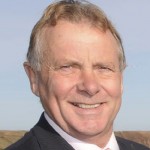
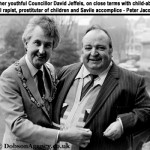



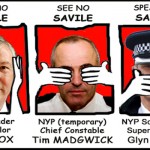
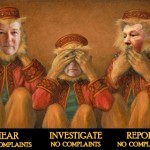


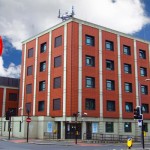















Comments are closed.